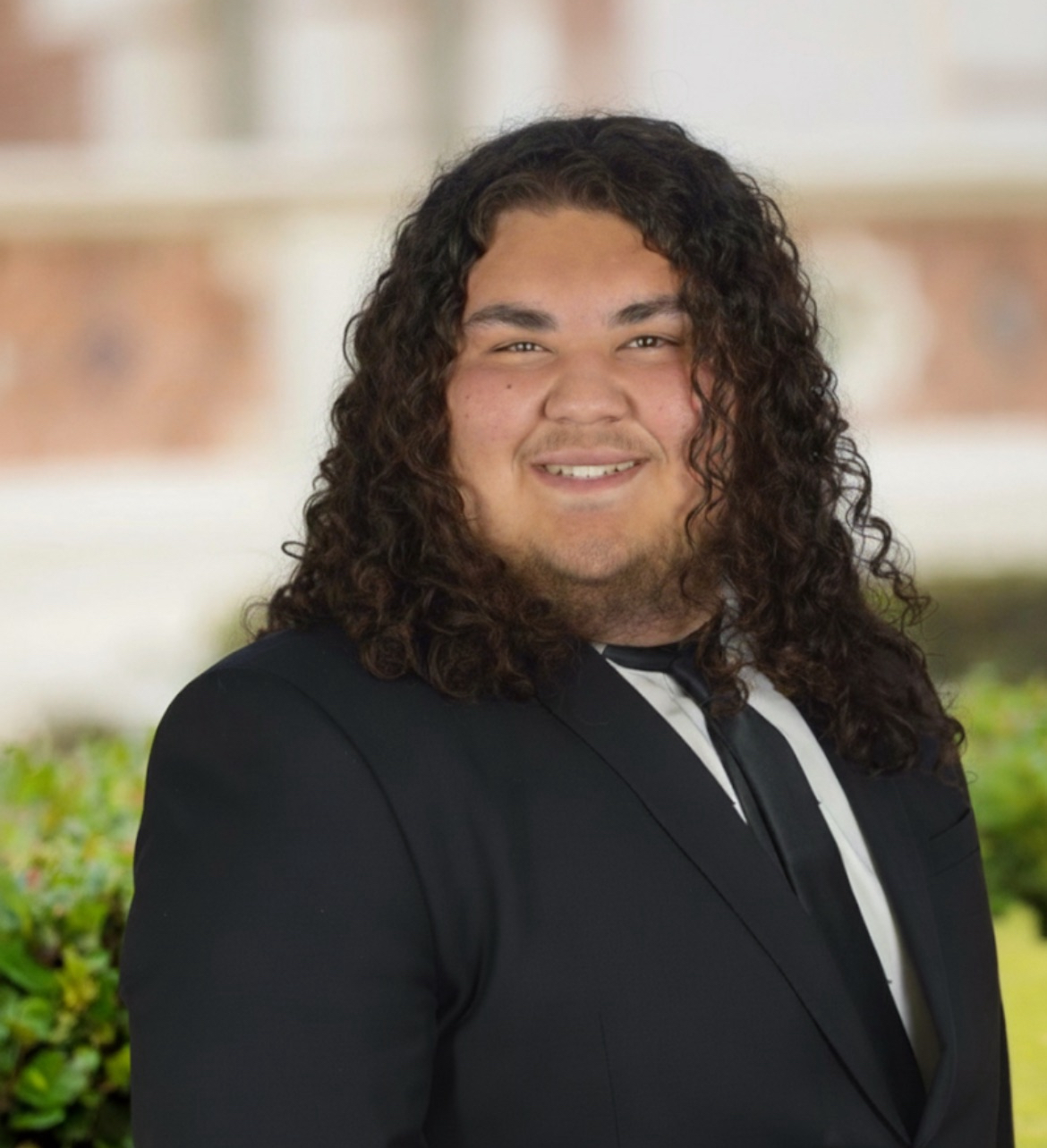Information for Faculty
The Las Positas Honors Program provides highly-motivated students with opportunities for taking more stimulating and more advanced Honors Courses, as well as taking any regular courses at an Honors level through activities and experiences designed specifically to encourage independent and creative learning. Our students participate in a wide variety of research projects and other activities to create a rich, intellectual experience, designed to prepare students for transfer to four-year colleges and to build the intellectual and social skills needed for their success after transfer. Please check our Success Stories Page!
Students who complete 5 honors courses and meet other Honors Program requirements are also eligible for transfer agreements with many colleges including UCLA, Yale and many other public and private colleges. You are invited to take part in their success stories by teaching Honors courses!
NEW: We are now offering full designated sections of Honors Courses! See the List of Honors Designated Sections
The thing is, you don’t have to teach a whole section of an Honors Course to take part in the Program. Any full-time or part-time faculty can offer their course as Honors to selected approved Honors students in their regular courses. If your student successfully completes your course as honors, an indication of "Honors" will be added to their transcript for your course even if the course doesn't appear as Honors on the schedule.
However, pay attention! The program has a limited capacity and strict requirements. Please do not offer the Honors option in your courses to students who are not in the Program yet. Approved Honors students should be able to show you that they are on LPC Honors Program Canvas to demonstrate that they are already in the program.
- If you note a student who could be a great candidate, please refer them to this website and recommend to apply to get approved as soon as possible. Once they are approved they can start working on their Honors Courses.
Also remember: agreeing to offer your regular course as honors is entirely optional.
Two Ways to Offer Honors Courses to Individual Students
Any faculty can offer their course as Honors in two different ways:
- You can offer Honors courses by getting CERTIFIED as an Honors Instructor and have an organized pre-approved Embedded Honors Component in your regular courses - you will get a separate Honors Canvas shell set up with typical generic ready-to-use honors assignments, which you can edit/change and reuse from semester to semester. This option is perfect if you plan to mentor multiple students on a regular basis. The certification usually takes only about 3 hours and you would get paid a one-time stipend for that time.
- You can create a contract with each Honors student individually for any regular course you teach, have the student submit the Contract to the Honors Program, and have the Honors Review Committee approve it. No training/certification is required for this option. This option is perfect if you plan to mentor a single student once in a while, or just want to try mentoring an Honors student for the first time and see if you want to become an Honors Instructor. Unfortunately, you cannot get paid for working on contracts. Another downside is that you may not be able to create a contract in the summer if the program is closed and the committee is not available for contract approvals and processing.
Bellow you will find more details on each of the two ways to offer your courses as Honors.
Mentoring as a Certified Honors Instructor
Why would you want to become an Honors Certified Instructor?
- You will get a Ready to Go Model Honors Canvas Course, all set up with typical honors assignments, which you can start using for your honors students right away. All you would need to do is choose the assignments and adjust the due dates for your liking. Or you can change or remove most of the assignments and add your own (as long as you get it approved), and you can keep adding material as you teach. Having one Canvas Course for all your honors students will not only make it easier to provide the honors material for multiple students at once, and to keep the students on track, but will also prevent plagiarism and AI usage (which is on a rise even among honors students), because when you accept honors projects in emails the projects don’t go through any checks. If you already have a Canvas course for your Honors students or have Honors Assignments embedded in your regular courses, that’s great - all you will need to do is have it aligned and approved to become a “Certified” Canvas Course.
- You will have a much greater autonomy to choose your own way of providing honors credit:
- You will be able to control everything, from the due dates to the types of honors assignments - you will NOT need to create any contracts with project proposals.
- You might not even have the students write any proposals or do any projects at all! Instead, you could build a set of honors level extra assignments - such model might work better for math or computer science classes, where having one big project might not be the best option.
- You will be able to offer the honors option for your summer courses, even when the program is closed and the review committee is not available for contracts approvals.
- You will get paid for getting your first Honors Canvas Course certified! The stipend will be equivalent to 3 hours of F-Hour rate (the current rate being $62.95 an hour).
- Certified Honors instructors with experience will have a chance to teach a whole stand-alone Honors course with a smaller class size in the future!
What exactly would you need to do to get certified?
- Complete a one-hour honors instructor orientation online or in person (only once).
- Have the Honors Program Coordinator review your Honors Canvas course/assignments after you personalized and finalized the Model Canvas Course to your liking (for each Canvas Course separately, if more than one).
That is all! However, keep in mind - Honors Program budget is limited, so the certification will take place on a first come first serve basis. If you are interested - please click on the following link to complete a very short form to start the process:
Sign up for Honors Canvas Course and to get certified!
If you are not ready, you can continue offering honors credit through contracts. You can find all the information about Contracts bellow.
Mentoring Based on a Contract
No certification/training is necessary, everyone can do it.
Any part-time or full-time faculty member is eligible to create an honors contract with an individual student in any regular course. An honors contract allows a student to go in-depth in an area of research related to your course. Any transfer-level course is eligible for an honors contract. Note: you may not be able to create a contract in the summer if the program is closed and the coordinator is not available for contract approvals and processing.
Step by Step Process
As a mentor for an honors student, your first job will be to work with your honors student to create an Honors Contract, which must be submitted to the Honors Program by the end of the third week of instructions for approval by the Program. Honors Contracts are always due at the end of the third full week of classes, or first week in summer (if the program is open in summer). The dates for each semester can be found on the right sidebar.
It is the student responsibility to create the Contract, all you need to do is to give feedback and approve it before the student submits it to the Program. The contract should indicate the nature of the honors project that a student will have to complete to earn the "honors" for your course as well as a schedule of one-on-one meetings (at least 4 are required). Honors projects can take the form of anything from a research project, to an experimental design and write-up, to the creation of work of art with a narrative describing how that art fits within the theory and practice of your discipline.
Please see criteria and examples of Honors Contract in a separate section on this page.
Once the student completes the project at the end of the semester and you approve it, the student should submit the completed work to the Program for the Honors Program approval before the due date (always the last day of instructions for the term). Once the student submits it - you should receive an email asking you to verify if the student indeed completed the work to your satisfaction. Once you verify the work and the work is also approved by the Honors Program - the student will receive "Honors" designation for your course on their transcript. If there are any issues with the approval you will receive a follow up email from the program.
If a student fails to complete the project, there is nothing that you have to do. You do not need to notify the Program. The student simply doesn't submit any completion forms and as a result is not getting the Honors designation for the course on their transcript.
A student must receive an "A" or "B" in the course for the honors designation to be added for this option.
Criteria and Examples of Honors Contracts
An honors work should represent a minimum of 25 hours of additional high-level work beyond what is already required in the course. It must consist of in-depth research, demonstration of critical thinking, and scholarship of greater breadth or depth than the normal coursework. The specific content and shape of the projects vary widely and should be designed to help prepare the student for work at a four-year institution. Topics are individual and very flexible, but here are some examples:
- an empirical research paper based on experiments, fieldwork or an extensive gathering and analysis of statistical data
- a traditional review of literature paper or a literary analysis
- a case study or series of case studies
- a specialized series of lab experiments
- an art project
- a musical composition
- a literary composition
- an original software or hardware creation
If the only outcome of the Honors course is a paper (either an original research or a review of literature) then the paper must be 12 pages minimum (not counting title pages, abstracts, references, figures and images), based on at least 10 valid scientific sources, and written in the publication style of the subject (APA, MLA, Chicago style...).
If the outcome of the Honors course involves a hands-on product (an art piece, a music composition, a computer program, a website), then it must be still accompanied with a written report with scholarly explanation/sources, however the count of pages can be less than 12 (proportionally to the size of the product created).
The one-page honors contract should address each of the following:
- What will be created as part of the additional honors work/outcome?
- What methods will be used to created the outcome?
- How frequently will the student and the mentor instructor meet?
- What is the timeline for the stages of the Honors work?
Below are some sample Contracts to give you an idea of how it should look like:
These are the most common reasons that honors contracts are not approved:
- The timeline does not have at least 4 steps with separate due dates
- The contract does not indicate that the student will meet with the instructor at least 4 times (every 2-3 weeks or more often in the summer term)
- Contract suggests a research paper as the only outcome and that paper is proposed to be less that 12 pages in length
- Contract doesn't mention how many valid sources the project will be based on, in addition to the required sources/readings of the regular course (10 sources is a minimum).
- The writing format for a final paper is not specified or is not appropriate for the discipline (APA versus MLA versus Chicago style etc.).
- Contract has a product as an outcome (a computer program, a performance, an artifact) and does not mention any written analysis accompanying the product.
Compensation for Mentoring Students
Unfortunately, due to the growth of the Program, processing and paying for each individual contract is logistically and fiscally impossible. The only monetary compensation is available for a one-time Honors Faculty certification (see Certification information above). The hope is that the certification will make it easier for the faculty to mentor students without spending time outside of their office hours.
Frequently Asked Questions
Mentors will:
- Help set the parameters of the student's contract
- Provide feedback to the student every 2-3 weeks
- Approve the completed project
- Reply to honors coordinator's email inquiry to confirm the project is completed
The student must:
- Submit the honors contract form to the Honors Program
- Complete the work on the schedule you two have determined
- Revise and amend their work based on your supervision
- Submit the honors work completion report to the Honors Program
They can, but the scope of the project would be bigger (doubled for pairs and even more for groups). It's important that each student gets to participate in each step/task (so that each of them learns each skill). It's just really important we make sure all honors students actually learn all of the "honors" skills. For example, sometimes one of the students takes on all the writing, because they are better at it, and the other student takes on something else, and that is not the best for them. If writing is one of the learning outcomes for the course then each student needs to learn how to write, so if one student is better at writing, then they should help the other student/s and/or edit their work, but the other student still needs to learn how to write and has to write at least some part of the paper (if it's a paper). Of course, it depends on the discipline and the skills you deem important for the honors students to learn in your class.
As some examples, you can ask the students to add a page where they would describe in detail each of their individual contributions to the work - if they submit one report together (same report for both of them). Or they can do a project together (collect the data together) but then have each submit a separate paper of their own as a report in their own words, with their own sources, interpretations, analysis.
Many faculty find that mentoring honors students is the most rewarding part of their year. Honors students are generally excited to learn and responsive to feedback. They are generally self-motivated and intellectually curious, and they often end up becoming majors in the discipline where they complete their honors projects. These projects help students build valuable skills for advanced university work, and completing the program provides access to transfer agreement with many selective colleges.
Thank you for your interest in the Honors Transfer Program and feel free to contact the Honors Transfer Program coordinator with any further questions.







